Related Research Articles

Sir Henry Percy, nicknamed Hotspur or Harry Hotspur, was an English knight who fought in several campaigns against the Scots in the northern border and against the French during the Hundred Years' War. The nickname "Hotspur" was given to him by the Scots as a tribute to his speed in advance and readiness to attack. The heir to a leading noble family in northern England, Hotspur was one of the earliest and prime movers behind the deposition of King Richard II in favour of Henry Bolingbroke in 1399. He later fell out with the new regime and rebelled, and was slain at the Battle of Shrewsbury in 1403 at the height of his fame.

Richard of York, 3rd Duke of York, also named Richard Plantagenet, was a leading English magnate and claimant to the throne during the Wars of the Roses. He was a member of the ruling House of Plantagenet by virtue of being a direct male-line descendant of Edmund of Langley, King Edward III's fourth surviving son. However, it was through his mother, Anne Mortimer, a descendant of Edward III's second surviving son, Lionel of Antwerp, that Richard inherited his strongest claim to the throne, as the opposing House of Lancaster was descended from John of Gaunt, Duke of Lancaster, the third surviving son of Edward III. He also inherited vast estates and served in various offices of state in Ireland, France and England, a country he ultimately governed as Lord Protector during the madness of King Henry VI.

Ralph Neville, 1st Earl of WestmorlandEarl Marshal, was an English nobleman of the House of Neville.
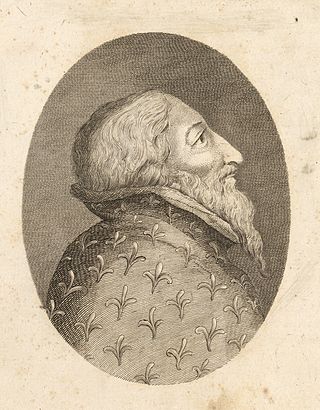
Henry Percy, 1st Earl of Northumberland, 4th Baron Percy, titular King of Mann, KG, Lord Marshal was the son of Henry de Percy, 3rd Baron Percy, and a descendant of Henry III of England. His mother was Mary of Lancaster, daughter of Henry, 3rd Earl of Lancaster, son of Edmund, Earl of Leicester and Lancaster, who was the son of Henry III.
Henry Percy, 2nd Earl of Northumberland was an English nobleman and military commander in the lead up to the Wars of the Roses. He was the son of Henry "Hotspur" Percy, and the grandson of Henry Percy, 1st Earl of Northumberland. His father and grandfather were killed in different rebellions against Henry IV in 1403 and 1408 respectively, and the young Henry spent his minority in exile in Scotland. Only after the death of Henry IV in 1413 was he reconciled with the Crown, and in 1414 he was created Earl of Northumberland.
Reasonable Doubt is a 1936 British comedy film directed by George King starring John Stuart and Nancy Burne. It was produced by the Hungarian Gabriel Pascal.
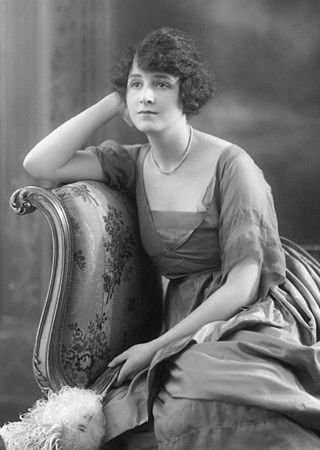
Marjorie Hume was an English film actress. She appeared in 36 films between 1917 and 1955.
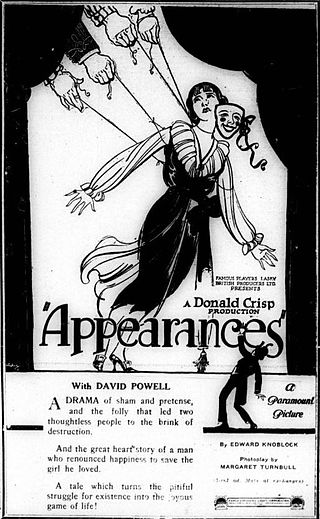
Appearances is a 1921 British drama film directed by Donald Crisp. Alfred Hitchcock is credited as a title designer. It is a lost film.

John Clifford, 7th Baron de Clifford, also known as John, Lord Clifford, 7th Lord of the Honor of Skipton, KG, was an English peer. He was killed at the siege of Meaux, France.
Elizabeth Percy may refer to:
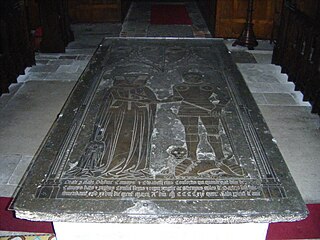
Elizabeth Mortimer, Lady Percy and Baroness Camoys, was a medieval English noblewoman, the granddaughter of Lionel of Antwerp, 1st Duke of Clarence, and great-granddaughter of King Edward III. Her first husband was Sir Henry Percy, known to history as 'Hotspur'. She married secondly Thomas Camoys, 1st Baron Camoys. She is represented as 'Kate, Lady Percy,' in Shakespeare's Henry IV, Part 1, and briefly again as 'Widow Percy' in Henry IV, Part 2.
The White Lilac is a 1935 British mystery film directed by Albert Parker and starring Basil Sydney, Judy Gunn, Claude Dampier and Percy Marmont. It is based upon the play of the same name by Ladislas Fodor. It was made at Wembley Studios as a quota quickie by the British subsidiary of Fox Film.
The Amateur Gentleman is a 1920 British drama film directed by Maurice Elvey and starring Langhorn Burton, Madge Stuart and Cecil Humphreys. The film is adapted from the 1913 novel The Amateur Gentleman by Jeffery Farnol.
The Duchess of Seven Dials is a 1920 British silent romance film directed by Fred Paul and starring Cecil Mannering, Marjorie Hume and Adelaide Grace. Its plot involves a young aristocratic woman who falls in love with a curate doing charitable work in the Seven Dials area of Central London. It was made by the London Film Company.
The Island of Despair is a 1926 British drama film directed by Henry Edwards and starring Matheson Lang, Marjorie Hume and Gordon Hopkirk. It was based on a novel by Margot Neville.
Afterwards is a 1928 British silent drama film directed by Lawson Butt and starring Marjorie Hume, Julie Suedo and Joseph R. Tozer. It was made at Bushey Studios, and based on a novel by Kathlyn Rhodes.
The Elusive Pimpernel is a 1919 British silent adventure film directed by Maurice Elvey and starring Cecil Humphreys, Marie Blanche and Norman Page. It was based on the 1908 novel The Elusive Pimpernel by Baroness Orczy.
Silent Evidence is a 1922 British silent mystery film directed by E. H. Calvert and starring David Hawthorne, Marjorie Hume and Frank Dane.
Her Redemption is a 1924 British silent crime film directed by Bertram Phillips and starring Queenie Thomas, John Stuart and Cecil Humphreys.
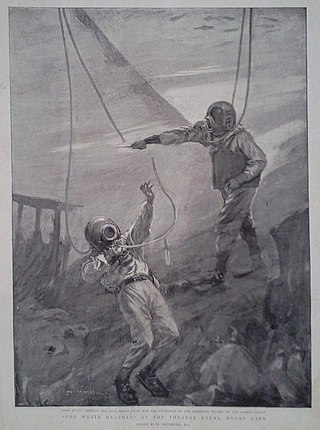
The White Heather is an 1897 melodrama by playwrights Cecil Raleigh and Henry Hamilton. The climactic scene of the play portrays a fight between two underwater divers.